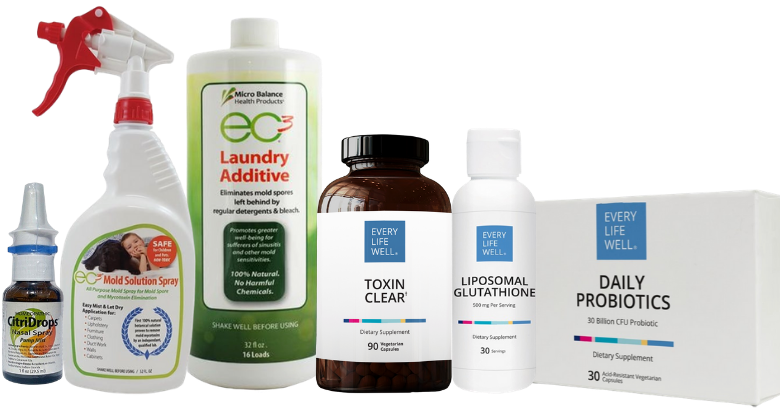Vitamin D And Omega-3 Supplements For Autoimmunity
Autoimmune diseases are complex, multifactorial chronic diseases that primarily affect adult women. Chances are, you or someone you know has an autoimmune process underway in their body.
If someone in your family has an autoimmune disease, your risk is higher of developing one yourself. If you already have an autoimmune disease, you are at risk of developing a second. I see this everyday.
New research sheds light on simple nutrients, including vitamin D and omega-3 fats, that can decrease the risk of developing autoimmunity.
Often, we focus on supplements in terms of treatment as part of an overall Functional Medicine approach for autoimmune disease. Now, we have more tools in our toolkit for prevention too.
This article will dive into autoimmunity and discuss vitamin D and omega-3s.
Keep reading to learn more about:
- Autoimmune disease
- The conventional vs. functional medicine approach to autoimmunity
- Supplements to consider, including vitamin D and omega-3 fats
- Other tools and areas to explore when treating autoimmune disease
What Is Autoimmune Disease?
Autoimmune diseases occur when the immune system can’t distinguish cells and tissues that are “self” from “non-self.” The body makes antibodies to components of its cells to its cells, and inflammation ensues, contributing to tissue destruction and, over time, loss of function.
Autoimmune diseases are the third most common chronic disease in western countries, affecting three to five percent of the population. Over 80% of autoimmune patients are women.
There are over 100 distinct autoimmune diseases. Many affect a particular organ or part of the body; rheumatoid arthritis affects the joints, and Crohn’s disease affects the colon, as examples. Other autoimmune diseases are systemic; lupus is an example.
Some autoimmune diseases, such as Hashimoto’s thyroiditis and Type 1 diabetes, are common, while others are more elusive and challenging to diagnose.
Autoimmune diseases include:
- Alopecia areata
- Ankylosing spondylitis
- Autoimmune hepatitis
- Autoimmune pancreatitis
- Addison’s disease
- Ankylosing spondylitis
- Autoimmune hepatitis
- Autoimmune pancreatitis
- Celiac disease
- Crohn’s disease
- Endometriosis
- Eosinophilic esophagitis
- Graves’ disease
- Guillain-Barre syndrome
- Hashimoto’s thyroiditis
- Hemolytic anemia
- Interstitial cystitis
- Lyme disease
- Multiple Sclerosis
- Myasthenia gravis
- Pernicious anemia
- Psoriasis
- Raynaud’s phenomenon
- Rheumatoid arthritis
- Scleroderma
- Sjogren’s syndrome
- Systemic lupus erythematosus (SLE)
- Type 1 diabetes
- Ulcerative colitis
Along with these that you may recognize, there are dozens more.
A Functional Medicine Approach To Autoimmunity
The conventional approach to autoimmune disease addresses the disease by the organ or part of the body that the disease affects. Crohn’s disease is treated by a gastroenterologist. Hashimoto’s is treated by an endocrinologist. When in fact, all autoimmune diseases are diseases of the immune system and share some commonalities.
Conventional medicine is more focused on managing symptoms and inflammation. While prescription medications and surgery certainly have their place, Functional Medicine doctors have even more tools at their disposal.
Functional Medicine sees body systems as interconnected and seeks to uncover the root cause of imbalance in the body. While autoimmunity may appear differently from person to person, there are some similarities in what drives them.
First, there is a genetic predisposition to autoimmune disease, but it’s the environment that pulls the trigger. Epigenetics, or gene expression, is a modifiable aspect of our health.
The other component to consider with autoimmunity is the health of the microbiome. The microbiome intimately connects with the immune system of the host.
Environmental factors that can trigger autoimmunity by affecting epigenetics include:
- Gluten and other food sensitivities
- Mercury and other heavy metals
- Environmental toxins
- Stress
- Hormone imbalances
- Pathogenic infections
- Microbiome imbalances, dysbiosis
Autoimmunity is characterized by a process called molecular mimicry. When a foreign protein, or antigen, makes its way inside the body, the body mounts an immune response.
In autoimmunity, this immune response is misplaced, and the body mistakes the self-tissue as a foreign invader. For example, the protein structure of gluten is similar to a protein found in the thyroid, so that gluten may trigger the autoimmune process in some people.
A Functional Medicine Approach works to identify the antigen triggers and reestablish gut microbiome health while using natural approaches to reduce inflammation, build nutrient status, and optimize lifestyle.
Managing symptoms is part of the goal, but Functional Medicine also works to halt tissue damage and prevent concurrent autoimmune diseases from developing. For example, it’s common for people with hashimoto’s thyroiditis to also have celiac disease. However, if we can modulate the immune system, perhaps we can prevent future autoimmune conditions from being triggered.
Supplements And Autoimmune Disease
Nutraceuticals are targeted supplements that work to address root causes and are an essential tool in the Functional Medicine toolkit.
Before we dive into some of the supplements to consider in autoimmune disease, it’s important to note that the immune system is overactive in autoimmunity.
So, it’s important to not stimulate the immune system even more. Common immune-boosting supplements and herbs may not be appropriate for people with autoimmune disease, so make sure to work with a knowledgeable practitioner for guidance.
Vitamin D and Omega-3s
Vitamin D and omega-3 fats are essential nutrients to consider with autoimmune disease, and both are common deficiencies in the population. Vitamin D regulates genes that are involved with inflammation and immunity.
In animal models, vitamin D has been shown to inhibit the progression of autoimmune disease, although human trials have had mixed results using vitamin D as a treatment, probably because most patients have more complexity than just suboptimal vitamin D levels.
Omega-3 fats are obtained from eating cold-water fish in the diet. Those fish have consumed algae so it’s possible to get your omega’s from algal sources too. They are, by nature, anti-inflammatory.
Omega-3 fats are used as a supplement as part of a treatment strategy to decrease inflammation in autoimmune disease.
Recent research suggests the power of vitamin D and omega-3 supplements to prevent autoimmune disease. This is excellent news for someone who has a family history of autoimmunity or a genetic predisposition but hasn’t developed autoimmunity, as well as those with a current diagnosis.
This 2022 randomized controlled trial with over 25,000 participants published in the British Medical Journal examined vitamin D and marine omega-3 fats in terms of prevention of autoimmune disease. Participants received 2000 IU per day of vitamin D, 1000 mg per day of omega-3 fats, or placebo and were followed for around five years.
Results found that those who took a vitamin D supplement for five years had a 22% reduction in autoimmune disease, with or without taking omega-3s. Those who took the omega-3 fats had a reduced rate of autoimmune disease by 15%, with or without also taking the vitamin D, although this data point was not statistically significant.
It’s important to note that 2000 IU of vitamin D is a minimal dose (even though it’s higher than recommended amounts) and may not be a high enough dose to correct a deficiency or maintain levels for some people. It’s important to have vitamin D levels evaluated and to supplement accordingly. Often this looks more like 5000 IU per day.
It’s important to not overdose on vitamin D – work with a qualified practitioner who knows your history and labs to help guide you. More is not always better.
1000 mg of omega-3 fats (EPA and DHA) is a standard dose, although some may benefit from going higher. Your Functional Medicine provider can use specialized testing to evaluate your omega-3 levels and optimize diet and supplementation.
Other supplements to consider with autoimmune disease include:
- Glutathione is the body’s master antioxidant that helps prevent tissue damage caused by inflammation. It’s also critical for detoxification. 500 mg of liposomal glutathione is a suggested dose to consider.
- Curcumin is the potent anti-inflammatory compound found in turmeric spice. Liposomal curcumin at a dose of 500 to 1000mg per day can be used for rheumatoid arthritis and other autoimmune diseases.
- Probiotics help to repopulate and balance the microbiome. Dysbiosis and leaky gut impact the immune response and contribute to autoimmunity. Specific probiotics are often suggested based on GI MAP stool test results and can also be used daily in a maintenance dose. Again, not all probiotics are necessary or appropriate for everyone.
Please note that supplements aren’t a magic pill that eliminates disease or the risk of developing autoimmunity. Instead, they are powerful tools in the Functional Medicine toolkit both for managing disease and addressing the root causes of the immune dysfunction.
In addition, consider working with a Functional Medicine doctor to address:
- Microbiome imbalances
- Hormone imbalances
- Pathogens
- Detoxification
- Micronutrient status
- Identifying – and removing- personal triggers
- Optimizing your diet (A Paleo, grain-free diet can be very therapeutic for autoimmunity)
While many are told that autoimmune disease is a life-long chronic disease, this is not the case.
The disease process can often be slowed, halted, or even reversed by taking a root-cause Functional Medicine approach.
Optimizing your vitamin D and omega-3 status is one step you can take right away for prevention.
References
- https://onlinelibrary.wiley.com/doi/10.1111/joim.12395
- https://www.ncbi.nlm.nih.gov/pmc/articles/PMC7292717/
- https://pubmed.ncbi.nlm.nih.gov/18190880/
- https://www.ncbi.nlm.nih.gov/pmc/articles/PMC6300646/
- https://www.niehs.nih.gov/health/topics/conditions/autoimmune/
- https://www.ncbi.nlm.nih.gov/pmc/articles/PMC8791065/
- https://www.ncbi.nlm.nih.gov/pmc/articles/PMC5003001/
- https://www.ncbi.nlm.nih.gov/pmc/articles/PMC6213508/














